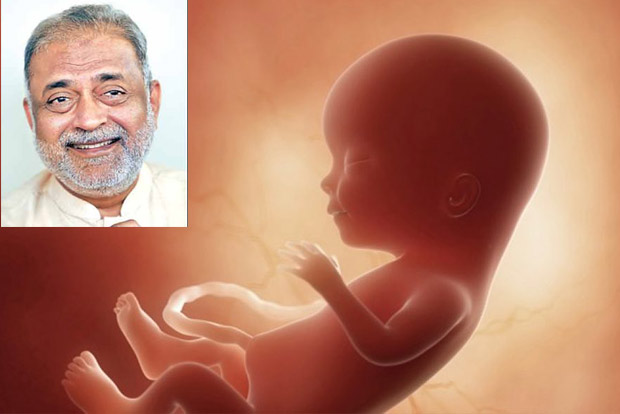Conception and role of samskaras in determining incoming soul
One early morning at Satkhol, just around six o’clock, we were having a great discussion with Shri Parthasarathi Rajagopalachari (fondly revered as Master, Chariji) about conception and the nature of the incoming soul.;
By : migrator
Update:2019-02-04 00:47 IST

Chennai
A few questions presented to him were:
- Does the place at the moment of conception determine the nature of soul?
- Does the timing (muhurtham) of conception determine the nature of soul?
- Does the samsakara play any part?
- When does the soul enter the embryo?
Master was so gracious to explain the intricacies of the queries we all had. He explained that the soul enters the body at the very moment of conception, otherwise why would Lalaji Maharaj (Shri Ram Chandra, Fatehgarh) recommend the best time to start meditation is at the moment of conception!
Then he explained that place, time and samskaras of parents do not play a crucial role in determining the type of incoming soul. It is very much like iron particles being attracted towards a magnet in the most natural way. What is this magnetic field at the time of conception that attracts a particular soul? It is something that the couple creates at that very moment with their profound inner attitude. If the moment is overpowered with beastly passion, a similar soul will be ready for incarnation. If your thoughts are pious, full of affection rather than lust, the field of vibrations that is created will attract a soul that would resonate or respond to the field the two have created.
Chariji was concerned about people fixing the time of birth by opting for caesarean delivery to manipulate the astrology of the child.
Chariji says, “What is most important is the attitude at the moment of conception.” He clarified by giving an example from the Mahabharat. Pandu was the father of the Pandavas, and Dhritrashtra was the father of the Kauravas. Satyavati, their grandmother, witnessed the death of her son Vichitravirya who had no lineage. She summoned Rishi Vyasa (who was also a son to her by Rishi Parashara) to grant sons to the queens of Vichitravirya.
One of the queens, Ambika, was frightened to see the dreadful look of Rishi Vyasa, who presented himself with no bath or preparation. She closed her eyes with disgust and fright during the entire period. The result was the birth of a blind child, Dhritrashtra.
When Rishi Vyasa approached Ambalika, the second queen, she too was frightened and horrified; she froze as if her blood circulation came to a complete halt. Consequently, the child born to her had completely pale skin colour, a condition called pandu, hence the name of child.
To ensure that Ambika conceives, Satyavati orders Vyasa to go to Ambika again. This time, Ambika instead places her maidservant in the bed. The maid felt honoured that she is able to mate with the great Rishi Vyasa. Her attitude was unlike that of Ambika and Ambalika. The son conceived to her was Vidura who possessed unparalleled wisdom.
Chariji explained with much humour another side of human nature when a couple hide or turn photos towards the wall of their chosen deity while indulging in intimate moments in their bedroom. This is also another kind of attitude that sentences the couple with enormous guilt; unfortunately, similar guilt will also be transmitted to the incoming being.
It is well-known how substance abuse or drugs or emotions can affect us physically, mentally and emotionally. Such episodes are not without the release of certain neuro-transmitters, either giving us good or bad feelings. Our blood circulates these neuro-transmitters inside of the mother’s body; can one imagine that it does not cross the placental barrier and affect the fetus within? Be it substance abuse or emotional abuse, everything has its cascading effect. Negative impacts are visibly noticeable.
TO BE CONTINUED
(Kamlesh D Patel is the fourth spiritual Guide in the Sahaj Marg system of Raja Yoga meditation. He is a role model for students of spirituality who seek that perfect blend of eastern heart and western mind. He travels extensively and is at home with people from all backgrounds and walks of life, giving special attention to the youth of today)
Visit news.dtnext.in to explore our interactive epaper!
Download the DT Next app for more exciting features!
Click here for iOS
Click here for Android

